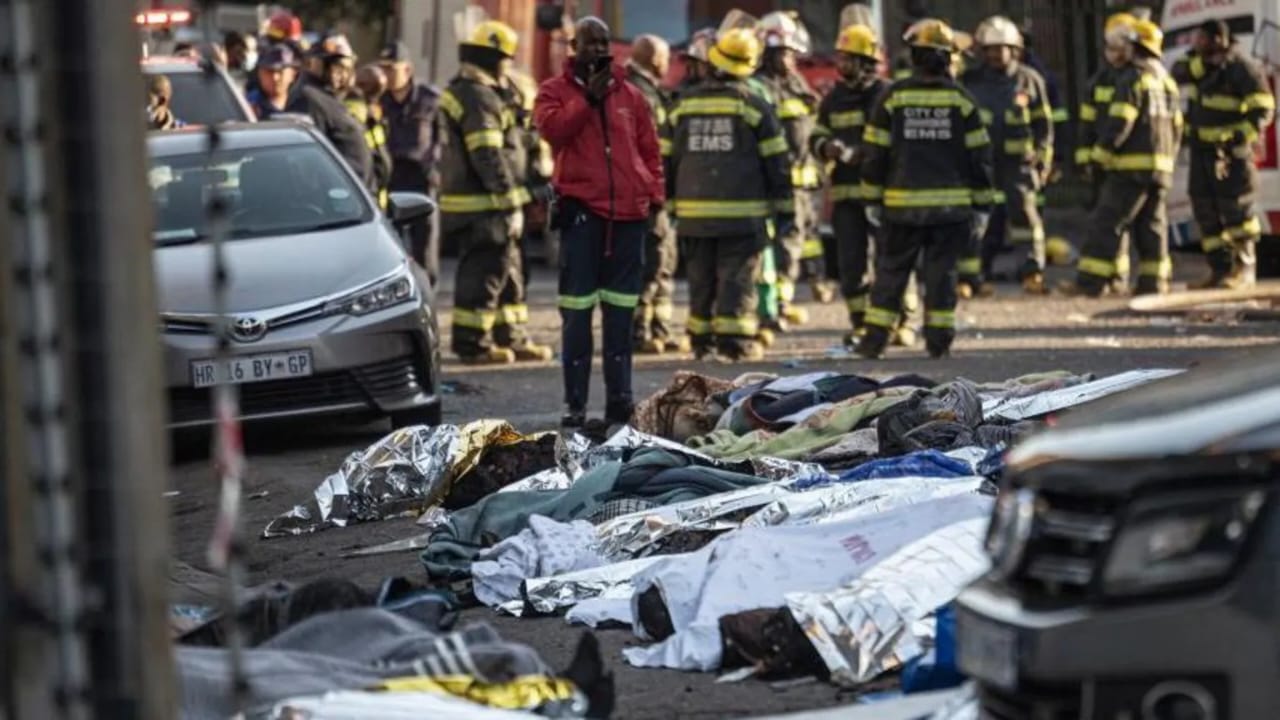Johannesburg's Deadly Inferno: A Wake-Up Call for South Africa's Housing Crisis
- by Freeman, RNG247
- about 6 days ago
- 150 views

In a shocking revelation that has sent ripples through South African society, authorities have officially attributed the devastating Johannesburg building fire of August 2023 to "extreme poverty and a severe lack of affordable housing." This tragic incident, which claimed 77 lives and left countless others injured, has brought the deep-rooted housing inequalities in Africa's wealthiest city into sharp focus.
Two years after the Usindiso building in Marshalltown was engulfed in flames, a comprehensive report commissioned by the Gauteng provincial government has shed light on the underlying causes of the disaster. While the full report remains undisclosed, key findings paint a grim picture of the housing crisis plaguing downtown Johannesburg.
Contrary to popular belief, the report suggests that "hijacked buildings" – properties illegally occupied and controlled by criminal elements – are not the primary issue. Instead, it reveals that only 5% of the city's buildings face allegations of unauthorized rent collection. The real culprits appear to be overcrowding, hazardous living conditions, and a severe lack of basic services.
A commission of inquiry, established in the wake of the tragedy, conducted an extensive investigation encompassing approximately 110 properties. Their findings are alarming: nearly 80% of surveyed buildings had significant fire safety concerns, while 71% lacked any fire safety equipment whatsoever. Even more disturbingly, 77% of these properties were devoid of essential services such as running water, sanitation, refuse removal, and electricity.
The report doesn't shy away from placing blame on Johannesburg officials, accusing them of failing to allocate sufficient funds for housing. This negligence has created a perfect storm of unsafe living conditions in the city's inner districts.
In response to these findings, the commission has put forth a series of recommendations. These include developing a comprehensive plan to address social housing problems, ensuring the provision of basic services, and exploring innovative ways to cut through red tape for developers and tenant relocation.
Nomzamo Zondo, executive director of the Socio-Economic Rights Institute (SERI), welcomed the commission's findings, stating, "The recommendations give urgent direction on how to tackle a long-standing housing crisis." She expressed hope that this report would dispel myths about unlawful occupation and prompt a change in approach from city politicians and officials.
As Johannesburg grapples with the aftermath of this tragedy and the stark realities it has exposed, the path forward remains challenging. The commission's report serves as a stark reminder that without political will, proper planning, and adequate resources, the dream of dignified living conditions for the inner-city poor will remain elusive.
The Usindiso building fire has become a symbol of South Africa's housing crisis, a tragedy that continues to haunt survivors who, two years on, still await permanent housing solutions. As the nation reflects on this dark chapter, the urgent need for systemic change in urban housing policy has never been clearer. The question now is whether this wake-up call will finally spur the decisive action needed to prevent future tragedies and ensure safe, affordable housing for all of Johannesburg's residents.
















0 Comment(s)